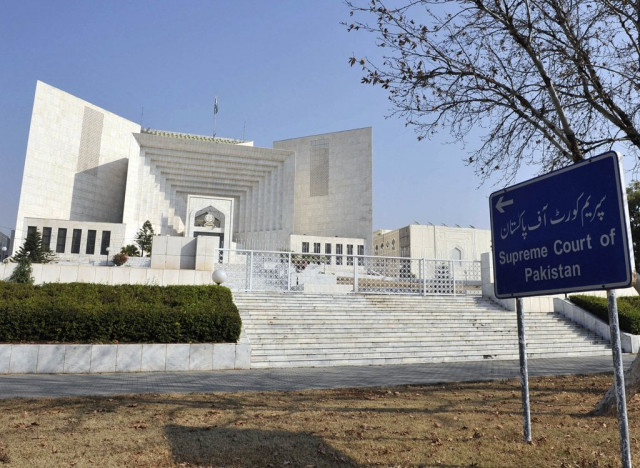Supreme Court laments male heirs defrauding females
Court orders property of deceased to be distributed among legal heirs in accordance with Muslim laws of inheritance

The Supreme Court has expressed its dismay over the frequent practice in the country of male heirs resorting to fraud and other tactics to deprive female relatives of their inheritance rights.
“While this deprivation causes suffering to those deprived, it also unnecessarily taxes the judicial system of the country, resulting in a needless waste of resources,” read a seven-page judgment authored by Justice Qazi Faez Isa.
“Each and every day that a male heir deprives a female heir is also an abomination because it contravenes what has been ordained by Almighty Allah,” it added.
A division bench of the apex court led by Justice Isa ruled that on the death of a Muslim, their property devolved upon their legal heirs.
The SC was hearing the plea of two sisters, who had filed a suit against their two brothers assailing a gift mutation attested on November 22 1992. In the mutation, their father, Nizam Din, had gifted his property to his sons in equal shares. The suit, however, was dismissed.
The sisters succeeded in their appeal and the suit was decreed, but the brothers filed a civil revision before the Lahore High Court and were successful in setting aside the judgment of the appellate court and restoring that of the trial court, which had dismissed the suit.
The sisters later approached the Supreme Court.
"If any heir seeks to exclude the other legal heirs, as in the instant case by relying on a purported gift, the beneficiary of such gift must prove it,” the verdict read.
“The gift in this case is stated to have been witnessed by three persons, namely, Rana Muhammad Azeem, Nazir Ahmad and Khursheed Ahmad, and even if it be accepted that two of the said witnesses had died by the time the evidence was recorded, the third witness, namely, Rana Muhammad Azeem, was alive but he was not brought to testify as a witness in support of the gift.”
The SC noted that an adverse presumption might be drawn that if he did come to testify, he would not have supported the gift.
The court further observed that as if this was not enough, only one of the two beneficiaries, Muhammad Pervaiz, testified in support of the gift.
The other beneficiary, Muhammad Aslam, had not executed a power of attorney in favour of his brother Pervaiz, authorising him to give evidence on his behalf.
Also read: ‘Women inheritance rights protected under law’
“The purported donor of the gift, Nizam Din, was also not identified as required by section 42(7) of the Act, therefore, it cannot be said that the person who was presented before the Revenue authorities was Nizam Din.”
The court noted that the purported gift also suffered from the defect of non-acceptance by the beneficiaries. It also does not mention that the possession of the land allegedly gifted was handed over to the beneficiaries.
"The beneficiaries of the gift had to establish the making of the gift by their father, and also that they had accepted it and that they had received possession of the land, but none of these facts were established,” read the judgment.
"Therefore, there was no reason in fact or in law for the learned Judge of the Trial Court to have dismissed the suit. The mistake was rightly corrected by the Appellate Court, but the learned Judge of the High Court intervened to set at naught the judgment of the Appellate Court, primarily on the ground that the petitioners had failed to establish the mental incapacity and physical inability of Nizam Din which was not a determinative factor. The impugned judgment is not sustainable and is accordingly set aside and the judgment of the Appellate Court is restored.”
The gift mutation in favour of the brothers, which was attested on November 22, 1992, is set aside and declared to be of no legal effect. Consequently, the estate of the deceased Nizam Din shall be distributed amongst his legal heirs in accordance with the applicable Muslim laws of inheritance. “Since Nizam Din passed away in the year 2007, 14 years ago, the concerned revenue authority is directed to incorporate the names of [his] legal heirs in the revenue record.”
“If the respondents have sold or transferred any portion of the land to any third party, the petitioners’ shares shall be adjusted from their brothers’ available shares.”



















COMMENTS
Comments are moderated and generally will be posted if they are on-topic and not abusive.
For more information, please see our Comments FAQ